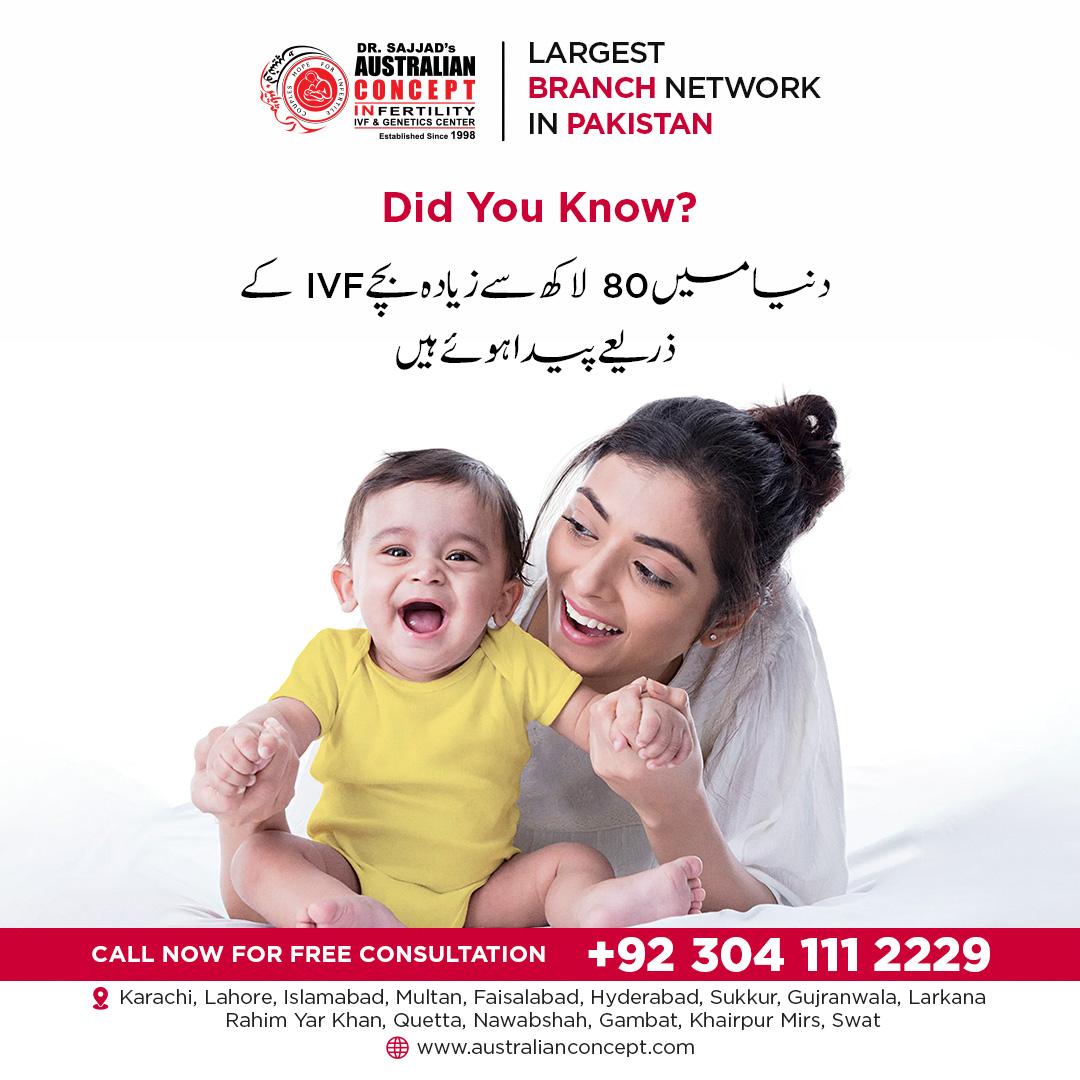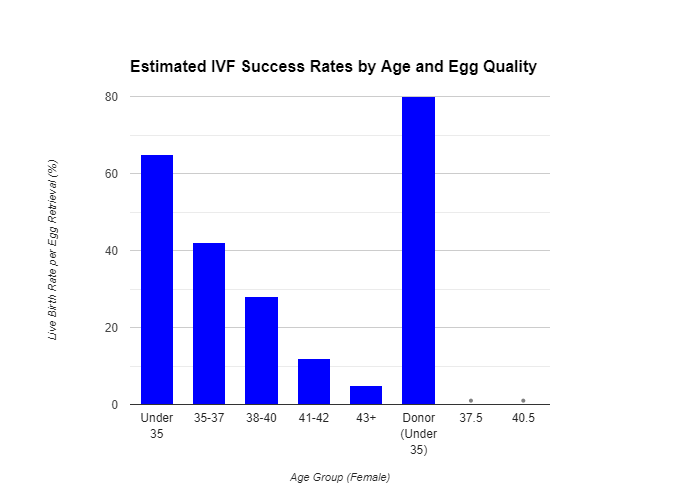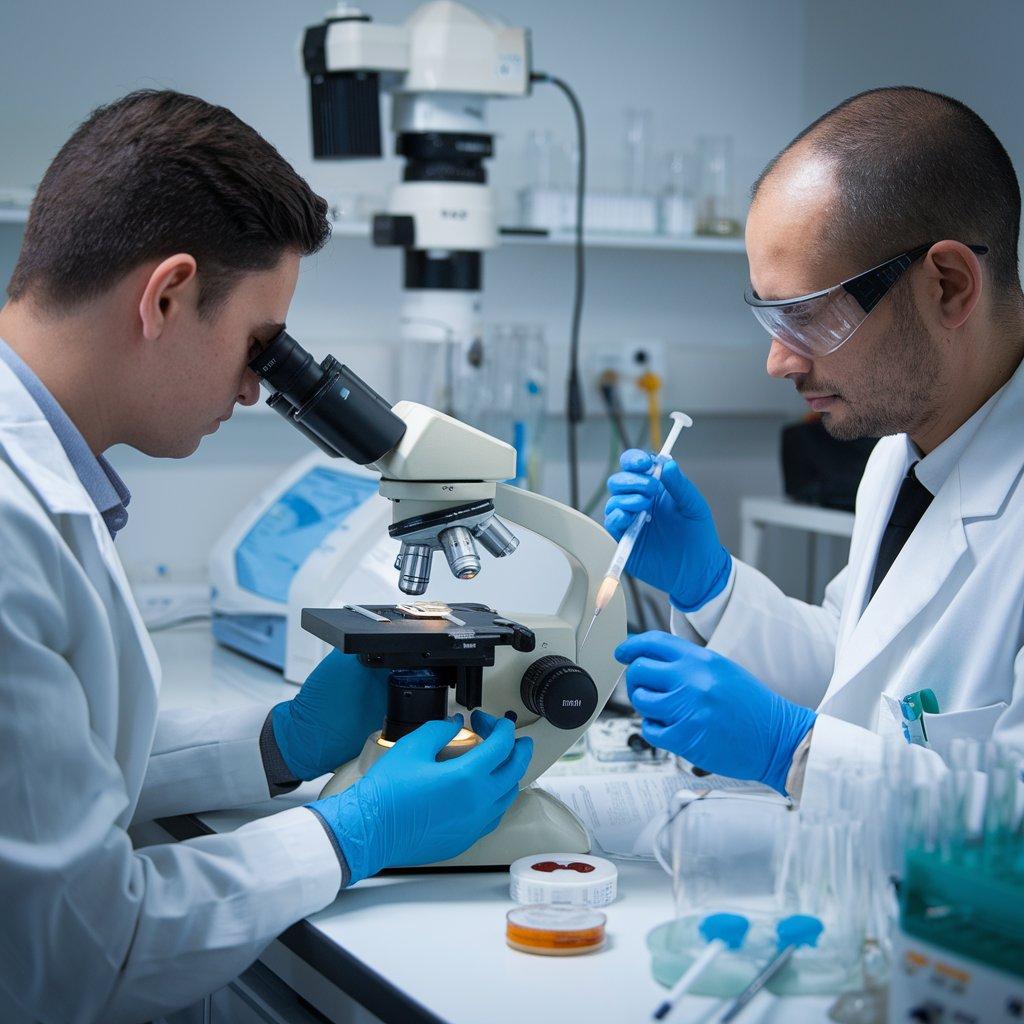In vitro fertilization (IVF) is a popular fertility treatment that helps many couples achieve their dream of parenthood. However, one key factor that greatly impacts the success of IVF is the age of the woman undergoing the procedure. Age is closely linked to egg quality, which also plays a crucial role in determining the success rate of IVF treatments.
As women age, their egg supply decreases, and the quality of the eggs produced tends to decline. Understanding how these factors affect IVF success can help couples set realistic expectations and make informed decisions about their fertility journey.
The Impact of Age on IVF Success
Age is one of the most significant factors influencing IVF success rates. Younger women, particularly those under the age of 35, generally have a higher chance of success with IVF. According to research, the success rate of IVF decreases as a woman gets older. Women in their 20s and early 30s are more likely to have healthy eggs, which leads to higher rates of fertilization and successful embryo implantation.
By the time a woman reaches her mid-30s, the quantity and quality of her eggs start to diminish. Women over 40 face a steeper decline in success rates, as both egg quantity and quality are significantly reduced. This decrease in egg quality also increases the likelihood of chromosomal abnormalities, which can result in failed implantation or miscarriage.

Egg Quality and Its Role in IVF
Egg quality refers to the overall health and viability of a woman’s eggs. Healthy eggs are more likely to be fertilized by sperm, divide properly, and develop into a healthy embryo. Poor-quality eggs, on the other hand, may not fertilize at all, or if they do, they may not develop into a viable embryo capable of implantation.
As women age, the likelihood of producing poor-quality eggs increases. Even though a woman in her 40s may still produce some eggs, they are often of lower quality compared to younger women. This is why women over 40 may experience more difficulties with IVF and may require additional cycles to achieve a successful pregnancy.
The Age-Egg Quality Connection
The connection between age and egg quality is well-established in reproductive medicine. As women age, the risk of chromosomal abnormalities in their eggs increases. These abnormalities can result in embryos that are not genetically viable, leading to a higher rate of miscarriage or failure to conceive altogether.
Younger women, with better-quality eggs, are more likely to produce embryos that are chromosomally normal. This increases the chances of a successful IVF cycle and a healthy pregnancy.
IVF Success Rates by Age Group
Here’s a general breakdown of how IVF success rates vary by age group:
- Under 35: Women in this age group have the highest success rates, with around 40-50% chance of a successful pregnancy in each IVF cycle.
- 35 to 37: The success rate drops slightly to about 30-40%, as egg quality begins to decline.
- 38 to 40: Women in this group experience around a 20-30% success rate.
- Over 40: For women over 40, the success rate can be as low as 10-20%, with egg quality being the primary limiting factor.

Egg Freezing as a Solution
One option for women who are not ready to start a family but want to preserve their fertility is egg freezing. Egg freezing allows younger women to store high-quality eggs for future use. By freezing eggs during their 20s or early 30s, women can increase their chances of success with IVF later in life, even if their natural egg quality has declined.
Factors That Can Improve Egg Quality
While age and genetics play a significant role in determining egg quality, certain lifestyle factors can also affect it. Women trying to improve their egg quality for IVF can focus on:
- A healthy diet: A balanced diet rich in antioxidants, vitamins, and minerals can support reproductive health.
- Exercise: Regular physical activity can improve overall health and fertility.
- Avoiding toxins: Smoking, excessive alcohol, and exposure to environmental toxins can harm egg quality.
- Reducing stress: High levels of stress may impact fertility, so stress-management techniques like meditation and yoga can be beneficial.
IVF Cost and Success Rates in Pakistan
In Pakistan, the cost of IVF can vary depending on the clinic, location, and specific treatments required. On average, an IVF cycle can cost between PKR 500,000 to 1,000,000. Despite the costs, IVF has provided hope for many couples facing fertility challenges.
As with other countries, the IVF success rate in Pakistan depends largely on the woman’s age and egg quality. Younger women have higher success rates, while older women may need multiple cycles or donor eggs to achieve pregnancy.
Conclusion
Age and egg quality are critical factors in determining the success of IVF treatments. Women under 35 generally have higher success rates due to better egg quality, while older women may face more challenges in achieving pregnancy. Understanding these factors can help couples set realistic expectations and make informed choices about fertility treatments. Additionally, lifestyle changes and options like egg freezing can help preserve fertility and improve the chances of a successful IVF outcome.


